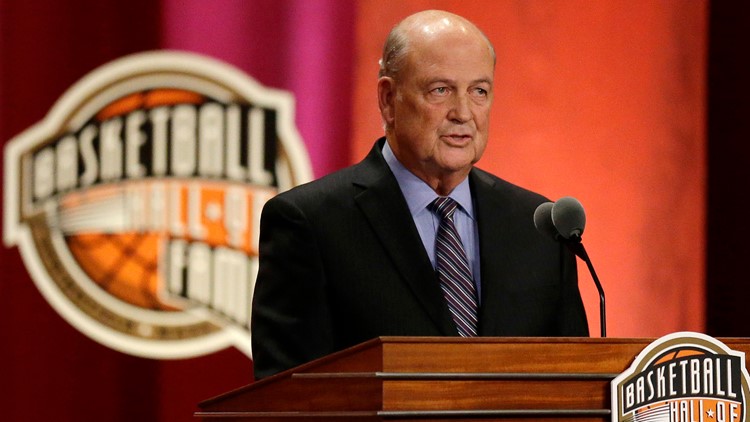INDIANAPOLIS — Tom Jernstedt, a member of the Naismith Hall of Fame for his contributions to college basketball and the NCAA Tournament, has died. He was 75.
The NCAA said Sunday Jernstedt died this weekend.
Nicknamed “Father of the Final Four,” Jernstedt has widely been credited with transforming the NCAA Tournament into the billion-dollar March Madness it has become today.
“A decade after his departure from the NCAA, Tom Jernstedt’s fingertips remain visible during March Madness and the Final Four,” NCAA senior vice president Dan Gavitt said in a statement. “His innovation and superb ability to develop relationships turned a basketball tournament into a three-week phenomenon that became a global event."
A former back-up quarterback, Jernstedt worked his first Final Four in 1973 and helped push the growth of the NCAA Tournament from 25 teams to the 68, anything-can-happen bonanza held every spring.
Jernstedt helped the NCAA increase its television contract from just over $1 million to more than $10 billion when he left in 2011. He served as president of USA Basketball, was a member of the College Football Selection committee and was inducted into the Naismith Hall of Fame as a contributor in 2017.
“Tom Jernstedt was a humble and unsung steward of the game,” John L. Doleva, president and CEO of the Basketball Hall of Fame, said in a statement. “Under his direction, the NCAA Men’s Basketball Tournament grew into a phenomenon that brings college basketball fans together on a global scale. He will forever be remembered as the Father of the Final Four and one of the most respected leaders in basketball.”
Jernstedt established himself as a team leader despite being a backup quarterback at Oregon from 1964-66 and went on to serve as the Ducks' events manager. He joined the NCAA in 1972 and spent 38 years with the organization.
“Tom served as a friend and mentor to countless people in and around collegiate athletics, and I’m proud to be among that vast group of people,” Gavitt said. "His legacy within the NCAA and its membership, and his impact on the sport of college basketball, is eternal. We extend our deepest condolences to Tom’s family.”



